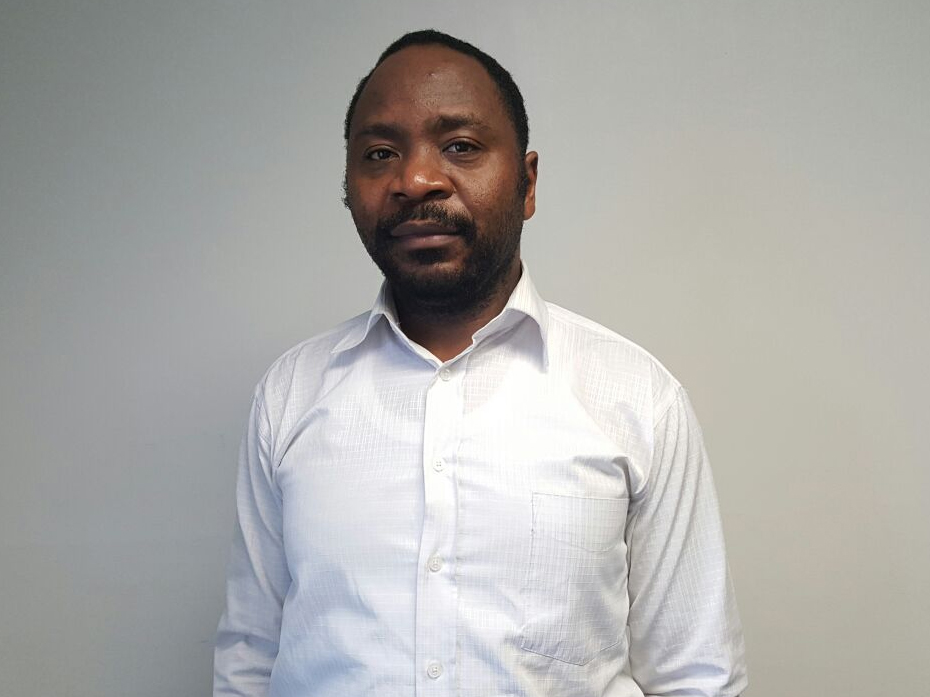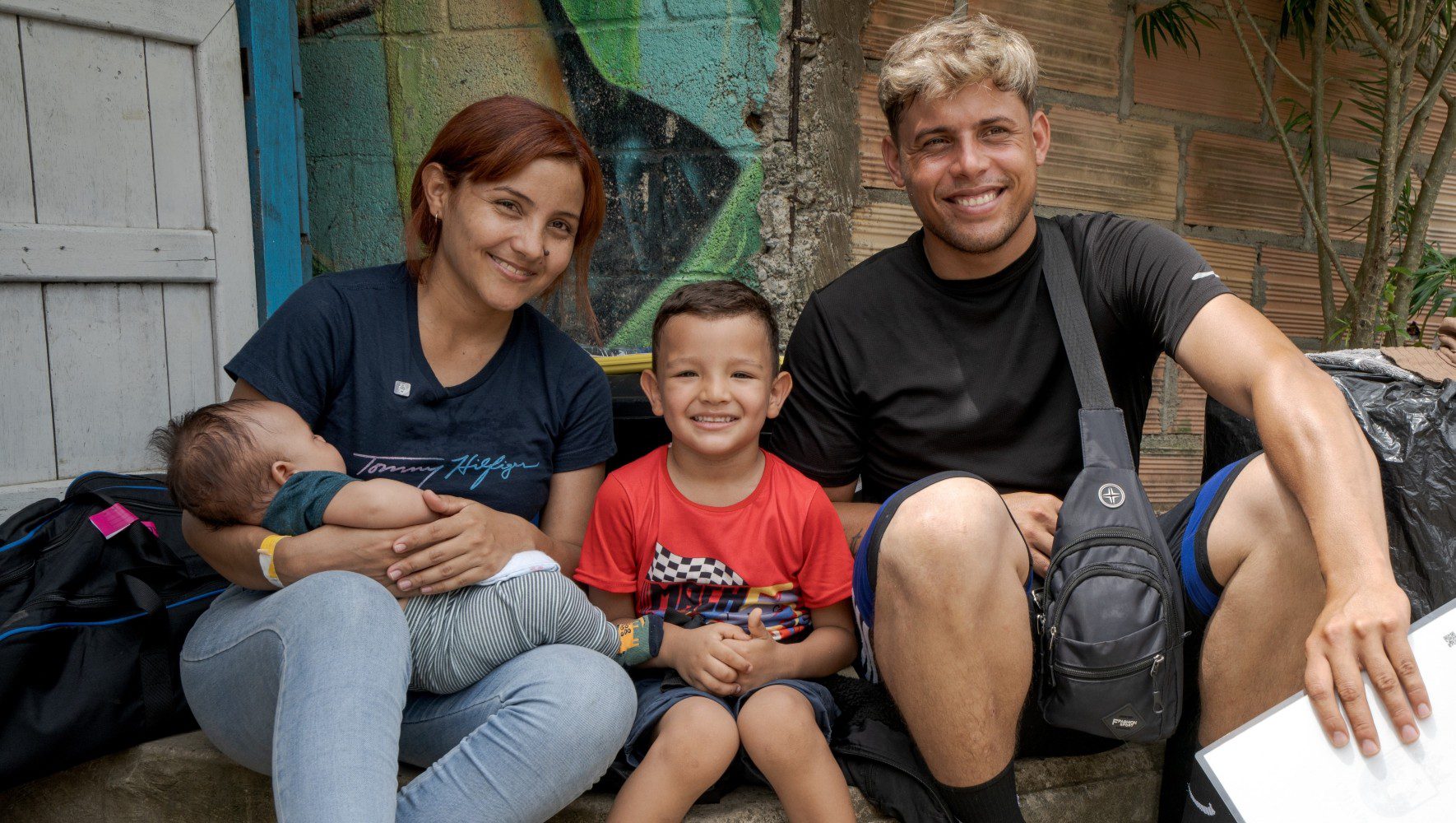Between Fire and a Cliff: Emmanuel Wins Asylum in America
By Yvonne Winer - Immigration Specialist, HIAS
Apr 26, 2017

Emmanuel Nge* of Cameroon was recently granted asylum. HIAS attorney Natasha Kirk argued his case.
(Yvonne Winer/HIAS)
“Arriving here, it is like arriving between fire and a cliff: the threat in our home country, and the difficult asylum process in the U.S. When someone abandons their homeland, more often than not they have genuine, life-threatening problems. We are looking to Americans for our own survival.”
Emmanuel Nge* is an English-speaking Cameroonian man who was forced to flee political persecution in his home country. After first escaping to Nigeria, he eventually reached the U.S. in August 2016 and spent the next six months in various U.S. detention centers.
With the help of HIAS attorney Natasha Kirk, who argued his case, Emmanuel was granted asylum in York, Pennsylvania on February 23, 2017.
Having legal representation “was of tremendous assistance to me,” Emmanuel said. “If you are an asylum seeker, your situation is a very difficult one. You must be very close to your source or creator, your god. You need to gather enough evidence to support your case. You need to be able to express yourself.”
Before he fled, leaving his wife and two young children behind, Emmanuel worked as a history teacher for secondary and high school students.
“What I most enjoyed about teaching was the relationships I formed with the students,” said Emmanuel.
But in 2012, a government official suspended Emmanuel’s salary when he refused to deliver a speech commemorating the May 20 holiday, which French-speaking Cameroonians celebrate as the day their nation unified. For English-speaking Cameroonians, it has a different meaning.
“May 20 is the day Cameroon changed from a federal to a unity government. On that day, Southern Cameroonians lost their autonomy,” Emmanuel explained. Now, he says, “we have a dictator as a president. He has been in power for more than 35 years.”
Emmanuel became a member of the Southern Cameroon National Council, or SCNC, a group devoted to defending the independence of the English-speaking population of Cameroon.
“As a history teacher, I realized English-speaking Cameroonians are treated as second class citizens. I joined to help in my own small way to support oppressed Cameroonians,” Emmanuel said.
Emmanuel was active in several SCNC protests, where he was arrested and threatened by local police. They told him, “If you are caught as a SCNC member, you will be punished severely.”
An unidentified man came to his classroom to monitor his teaching, to see if he was instilling anti-government ideologies.
The threats continued, until two of his SCNC colleagues and dear friends were murdered.
“We theorized that they would kill us next,” Emmanuel remembers. Fearing for his life, he fled.
But escaping Cameroon was only the first step toward freedom—seeking the protection as an asylum seeker in the United States presents its own set of challenges.
Emmanuel’s message for Americans is that, “asylum seekers really need your help and protection because we are being persecuted.”
“Be very strong, and do not give up,” he advises other individuals navigating the U.S. asylum system. “It’s difficult in the detention center. You need to be strong and courageous, because it’s not easy pursuing your case.”
Now that Emmanuel has been granted asylum, he is hopeful to reunite with his wife and children, who still face threats in Cameroon.
“My dream is to continue in my career and become a university lecturer one day,” said Emmanuel, who has since made a home in St. Michael, Minnesota.
“One of my principles is to fight against racism. I would like to participate in human rights activities. We need to work together in such a way that contributes to love, care, and concern for each other. That’s my contribution.”
Do you reside in New York City or the DC metro area? If you or someone you know needs help with an asylum case, email legalhelp@hias.org for more information.
*Name has been changed to protect the client’s’ privacy



